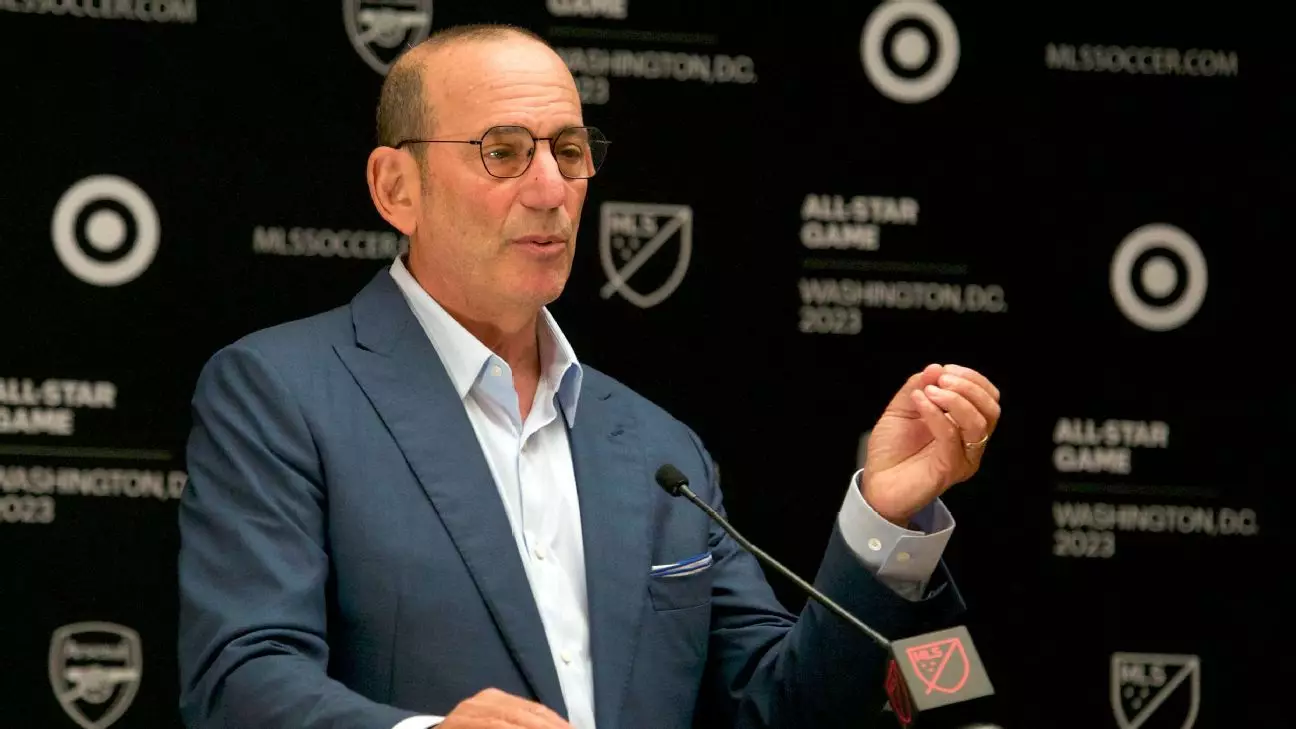The landscape of professional football is facing a transformative moment, largely driven by mounting concerns around player welfare and an increasingly congested global calendar. At the heart of this discussion is a recent antitrust lawsuit filed against FIFA, which has prompted major stakeholders in the football world, including Don Garber, the president of Major League Soccer (MLS), to take a closer look at how the sport is organized. As leagues around the globe grapple with this issue, the implications of these legal challenges could serve as a catalyst for essential reforms in how football is scheduled.
One major topic of contention is the FIFA Club World Cup set to take place in 2025, which will introduce an expanded 32-team format. LaLiga president Javier Tebas has openly expressed skepticism about the tournament, advocating for its cancellation due to concerns over sponsorship and broadcasting deals—or the lack thereof. Garber, while acknowledging Tebas’s concerns, asserts that the impending tournament, particularly scheduled in the United States during a crowded timeframe, could contribute to further oversaturation in the sport. This raises an essential point: the idea of incorporating yet another major tournament into an already packed calendar may not only disrupt league competitions but also jeopardize the quality of play.
The players themselves are beginning to voice their frustrations regarding the relentless fixture schedule. With concerns about injury rates soaring, famous players have hinted at the possibility of strike actions. Such sentiments are echoed by the players’ union, FIFPRO Europe, and several European leagues that recently filed complaints against FIFA’s international match calendar. As players become increasingly vocal about their working conditions, it becomes imperative for governing bodies to reassess their priorities and consider player health as central to the fabric of the sport.
Garber believes that disruption might be necessary to initiate meaningful discussions among various stakeholders, suggesting that collective decision-making, grounded in data and research, could pave the way for a healthier football landscape. While it is crucial for leagues and governing bodies to come together, the road toward reform will require them to prioritize collaboration over competition. Garber emphasized the importance of organizations being engaged in the decision-making process, particularly concerning the scheduling of the Club World Cup and its implications for existing leagues.
The ongoing debates about scheduling highlight a need for re-evaluating league formats themselves. Former footballer Gerard Piqué has proposed reducing the number of teams in leagues, suggesting a move from 20 to 16 teams as a potential solution to ease congestion. His insights align with broader calls for more streamlined competitions that can maintain the sport’s integrity while also preserving player welfare. It poses a compelling question: should the focus shift from maximizing revenue and viewership to fostering sustainable practices that safeguard the athletes’ well-being?
As football enters an era of potential upheaval, the importance of rethinking its structure cannot be understated. The challenges raised, particularly regarding the 2025 Club World Cup and the general structure of leagues, compel stakeholders to engage in discussions that reorient the sport toward a model that honors both its tradition and its players. For football to thrive, it must adapt, and so far, this critical moment of disruption may just be the impetus needed for galvanizing meaningful change within the global football community. By prioritizing collaboration and mindful decision-making, the world of football can emerge from this crisis not just intact, but revitalized.

